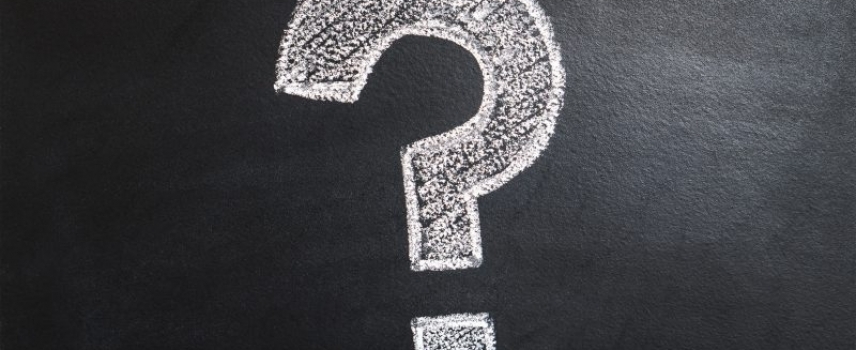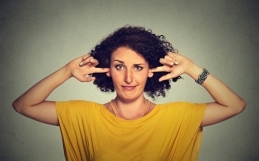Answers to Frequently Asked Questions About Anxiety
1. What are some of the most common signs of an anxiety/panic attack people should learn to recognize as it sets in?
An anxiety/panic attack can be described as a sudden onset of intense fear or discomfort that reaches a peak very quickly. Some common signs people should learn to recognize are:
Accelerated heart rate
Sweating
Shaking
Shortness of breath
Chest pain
Nausea
Feeling light-headed
Numbness or tingling sensations
Fear of losing control or “going crazy”
Fear of dying
2. Once an anxiety/panic attack strikes, what’s the first thing a person should do? Do you have a general outline of how to diffuse an attack once it’s started?
When an attack strikes, the first thing a person should do is identify what it is. Recognize that it is a panic attack, many people fear the worst when panic attacks start, thinking they are dying, and that could make them feel more intense. So first recognize and define it, then don’t try to stop it. I know that sounds counter intuitive but the more we try to stop something the more it persists. Say something to yourself like, “This is a panic attack and its okay.” Then try some deep breathing by inhaling slowly and deeply through your nose. Keep your shoulders relaxed, then exhale slowly through your mouth. As you blow air out, purse your lips slightly, but keep your jaw relaxed. When breathing in say to yourself “I know I am breathing in” and when you exhale say to yourself “I know I am breathing out.” Continue that process until you feel relaxed.
3. Any quick tips or tricks you can share with friends who may be around to witness an anxiety attack?
I know it’s hard not to get anxious yourself when you see someone experiencing an anxiety attack. So, I would first identify your own uneasiness around someone you care about experiencing an attack. It’s okay to be anxious too. Then ask them how they would like you to be there for them. If they are in the midst of a major attack and can’t verbalize too much, human touch is important, so maybe place your hand on his or her back and practice the breathing exercise with them. You can also reassure them that everything is okay, they are safe, and you are there with them. If they can talk, you can count backwards with them by 2s from 30. By having to count backwards by 2s they will concentrate on something else, keeping their mind off the panic. Again, don’t stress about needing the panic to stop, let them know they can take all the time they need and normalize their experience.
4. Are there any specific triggers (alcohol, caffeine, poor sleeping habits, etc.) people suffering with anxiety should try to avoid?
Don’t drink alcohol
Most of us know that alcohol is a natural sedative. Many of us drink to relax and to release tension. However, once the effects of alcohol are gone, anxiety may return with more intensity. If you only rely on alcohol to relieve you when you are anxious, instead of dealing with what is really going on with you, you may develop alcohol dependence. Alcohol in excess can actually induce the symptoms of anxiety. Alcohol is a toxin that when consumed in large amounts, leads to improper mental and physical functioning, by negatively impacting the levels of serotonin in the brain.
Stop smoking
Smokers often reach for a cigarette during more anxious times. However, just like drinking, smoking when you’re stressed is a quick fix that may worsen anxiety over time. Research shows that the earlier you start smoking in life, the higher your risk of being diagnosed with an anxiety disorder later in life. Research also suggests nicotine and other chemicals in cigarette smoke alter pathways in the brain linked to anxiety.
Say goodbye to caffeine
If you have chronic anxiety, caffeine is not going to be helpful when trying to reduce your anxious feelings. Caffeine can create nervousness, which is no good if you’re chronically anxious to begin with. Research has shown caffeine may cause or worsen anxiety by creating more panic attacks in people diagnosed with panic disorder. In some people, eliminating caffeine all together may significantly improve anxiety symptoms.
Avoid processed food
Low blood sugar levels, dehydration, or chemicals in processed foods such as artificial flavorings, artificial colorings, and preservatives may create mood changes in some people. Pay attention if your anxiety worsens after eating. It’s important to check your eating habits. If you notice that what you are eating is affecting how you feel, try to stay hydrated, eliminate processed foods, and eat a healthy diet rich in complex carbohydrates, fruits, vegetables, and lean proteins.
Get more sleep
Insomnia is not only a common symptom of anxiety, but lacking sleep can make your anxiety feel more intense. A sleep debt can have serious ramifications on your anxiety levels. This is because, sleep deprivation creates an imbalance in hormone levels that drive anxiety levels higher. Too little sleep also boosts adrenaline levels that can exacerbate existing anxiety issues.
Talk soon,
Dr. Ilene





